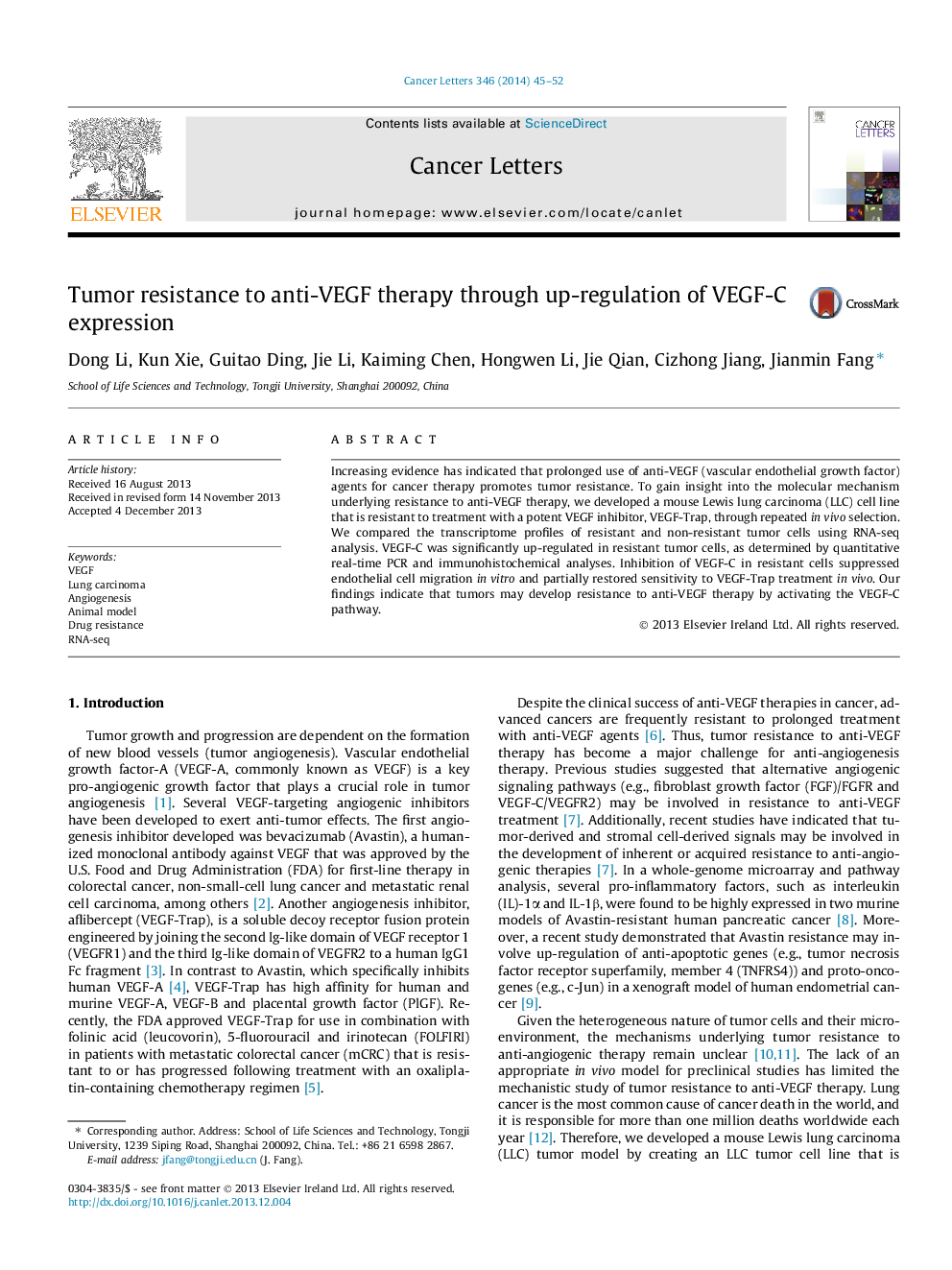| Article ID | Journal | Published Year | Pages | File Type |
|---|---|---|---|---|
| 10902437 | Cancer Letters | 2014 | 8 Pages |
Abstract
Increasing evidence has indicated that prolonged use of anti-VEGF (vascular endothelial growth factor) agents for cancer therapy promotes tumor resistance. To gain insight into the molecular mechanism underlying resistance to anti-VEGF therapy, we developed a mouse Lewis lung carcinoma (LLC) cell line that is resistant to treatment with a potent VEGF inhibitor, VEGF-Trap, through repeated in vivo selection. We compared the transcriptome profiles of resistant and non-resistant tumor cells using RNA-seq analysis. VEGF-C was significantly up-regulated in resistant tumor cells, as determined by quantitative real-time PCR and immunohistochemical analyses. Inhibition of VEGF-C in resistant cells suppressed endothelial cell migration in vitro and partially restored sensitivity to VEGF-Trap treatment in vivo. Our findings indicate that tumors may develop resistance to anti-VEGF therapy by activating the VEGF-C pathway.
Keywords
Related Topics
Life Sciences
Biochemistry, Genetics and Molecular Biology
Cancer Research
Authors
Dong Li, Kun Xie, Guitao Ding, Jie Li, Kaiming Chen, Hongwen Li, Jie Qian, Cizhong Jiang, Jianmin Fang,
